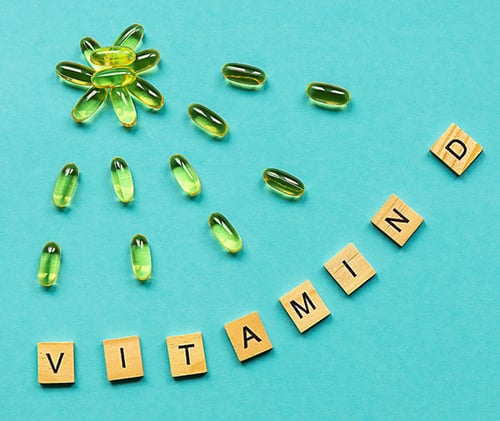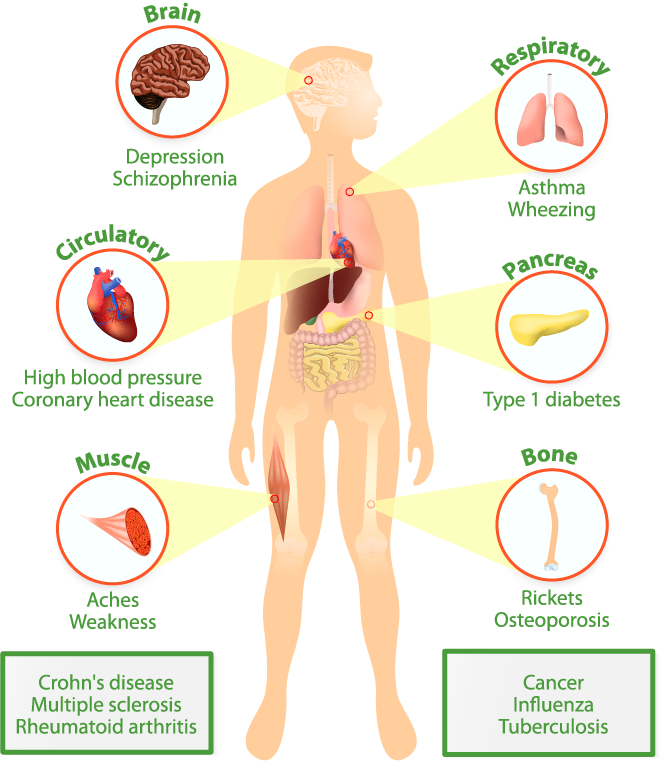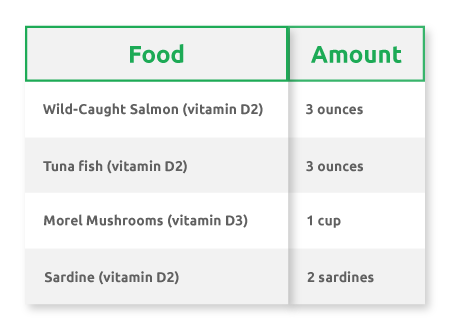Vitamin D as a Key Health Indicator
At Pravan, we care about health optimization, and vitamin D levels are one of the key indicators for prevention. With insufficiency of this nutrient linked to many diseases, the aimed approach is to help the body get the amount it needs to function optimally. This is why we'd like to share more about how vitamin D benefits us and how to optimize it.
About Vitamin D

Vitamin D has a huge impact on the health and function of your cells. It reduces cellular growth, a function that promotes cancer, and improves cell differentiation, which puts cells into an anti-cancer state. That makes this nutrient one of the most potent cancer inhibitors, which explains why its deficiency has been linked to colon, prostate, breast, and ovarian cancer.
What’s even more fascinating is how vitamin D regulates and controls genes by acting on a cellular docking station called a receptor that sends messages to our DNA. And that’s how vitamin D controls many functions, from preventing cancer to reducing inflammation, boosting mood, easing muscle aches and fibromyalgia, and building bones. Other studies have shown that vitamin D supplementation can reduce the risk of acute respiratory tract infections, so tracking your levels during cold and flu season can make a difference.
When thinking about vitamin D and how to obtain this nutrient’s benefits, you must first evaluate the factors that can already be affecting your levels, such as:
- Age - Vitamin D levels decrease with age.
- Weight - People with a body mass index (BMI) of 30 may have low levels since vitamin D is stored in fat, limiting the vitamin’s ability to circulate in the blood.
- Food intake - Some foods contain this nutrient naturally, while others are fortified with it and don’t have the same benefits.
- Or where you live - People who live in colder weather may have limited exposure to the sun.
But, as with everything, balance is the key to acquiring this nutrient’s benefits. Too little or too much of it has its downsides. Let’s dig deeper into the effects on levels considering deficiency, surplus, and how to reach optimal levels.
Vitamin D Deficiency & Surplus
Deficiency could increase mortality risk
A recent study published in October of this year found that low vitamin D levels are associated with a 36% increase in mortality rate through data from the UK Biobank. The study focused on using genetic variants as indicators to measure the effects external factors have on vitamin D levels. This research considered sun exposure and diet as external factors, meaning all natural behaviors of individuals involved. Research suggests that the way to work around deficiency would be to reach healthy levels with supplements by combining them with a balanced diet and sun exposure.

Watch out for vitamin D surplus
When overdoing it with supplements, vitamin D consumption can be toxic. It can lead to hypercalcemia, a condition in which too much calcium builds up in the blood, potentially forming deposits in the arteries or soft tissues. It may also predispose people to painful kidney stones, limiting the benefits of this nutrient on your body.
So, what's the target?

The recommended vitamin D level would be 50 ng/ML, no less and not much higher than that. In terms of supplementation, the dosage should be between 2,000 to 5,000 units daily when needed. When in doubt, physicians would recommend monitoring your blood levels. While some physicians approach patients’ vitamin D levels with intermittent dosing, this isn’t yet backed up by data. It’s also important to highlight that you should take the right type of vitamin D, as some variants, like vitamin D2, aren’t biologically active.
Other sources of Vitamin D

Nutrition and sun exposure are primary sources of vitamin D, but to achieve optimal levels, combining these with supplements containing this nutrient is essential. So here are tips on how to combine nutrition and sun exposure with supplementation.
When it comes to nutrition, choosing the right foods can be overwhelming. So, here are foods that our concierge nutritionist, Leyda Figueroa, recommends to patients with vitamin D deficiency:

Always combine these foods with fats like nuts, seeds, or coconut oil to boost the absorption of vitamin D. On how to incorporate these into your diet, try adding them to salads or pasta. Not all products containing vitamin D are good sources, for example, dairy products, given that the nutrient is often added rather than naturally found in them, specifically in pasteurized milk.
The most efficient source of vitamin D is sun exposure, which is daily for 10 to 20 minutes several times a week to meet. When sun is lacking, be more conscious of your diet and reach out to your physician to ask for supplementation.
As you can see, vitamin D is vital for optimal health. Remember that you're not alone! To learn more of our membership and primary care services click below.
Resources:
- https://www.mayoclinic.org/healthy-lifestyle/nutrition-and-healthy-eating/expert-answers/vitamin-d-toxicity/faq-20058108#:~:text=The%20main%20consequence%20of%20vitamin,the%20formation%20of%20calcium%20stones.
- https://draxe.com/nutrition/vitamin-d-foods/
- https://pubmed.ncbi.nlm.nih.gov/36279545/
- https://www.medscape.com/viewarticle/982923
- https://www.health.harvard.edu/staying-healthy/taking-too-much-vitamin-d-can-cloud-its-benefits-and-create-health-risks
- https://drhyman.com/blog/2010/08/24/vitamin-d-why-you-are-probably-not-getting-enough/
Follow us on IG in our journey to health and wellness

